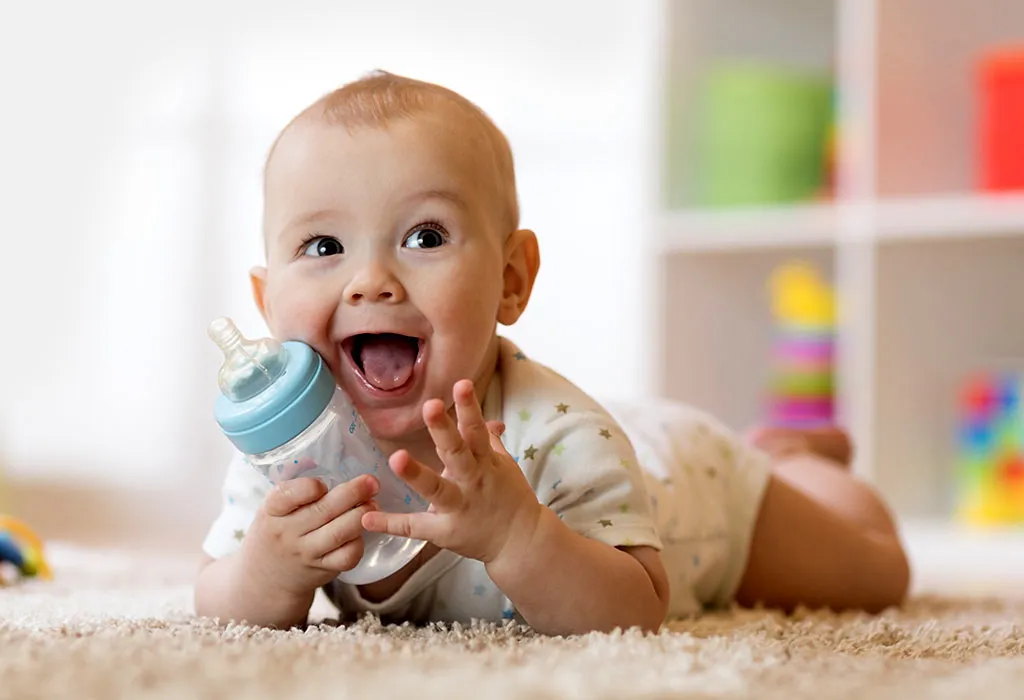The first time you hold your newborn to feed him or her with a bottle is sweet. But after a few days the novelty wears off. As a parent, you might find yourself wishing you could cross something off your to-do list to get some extra rest. As your baby gets stronger, you can help him or her learn to hold the bottle on his or her own. It’s never too early or too late to start practicing with your child.
Holding a bottle is an important milestone in a baby’s development. During the first few months, it may seem like he’s too young or too old, but he can develop this skill with time. The ability to hold a bottle requires fine motor skills, coordination, and strength in the upper body and core. If your baby reaches for the bottle during feedings, he’s probably ready to try it.
Not all babies begin holding a bottle at the six-month mark. Some don’t begin to show interest until nine or 10 months. Don’t worry if your baby is lagging behind – he or she may be ready to start at an earlier age. In any case, try to encourage the behavior by making the baby associate the bottle with hunger and drinking. If you’re not sure if your baby is ready for this milestone, monitor your baby’s playtime patterns to see if your little one is showing an interest in it.
When do babies hold their own bottle?
You can start bottle feeding as soon as your baby is seven months old. The sooner you start feeding your child solid foods, the less you’ll have to worry about your hands and arms hurting. If you don’t want to risk your child’s life, allowing them to feed themselves is the best option for your baby. It’s also important for you to remember that it will get easier as your child grows.
When do babies start holding their own bottles? Generally, babies can start holding their own bottles between six and ten months. This is an important milestone for your baby’s development as it allows him or her to gain a strong grip on a bottle. As your baby grows, you can let him or her feed independently. You’ll be happy to watch your child’s progress and bond with him or her.
When do babies start holding their own bottle? This is an important milestone for your baby. It requires both gross and fine motor skills to hold the bottle. It also shows your baby’s interest in the bottle. Also helps your child develop cognitively and associates the bottle with food. It is also an excellent sign of independence for your child. You’ll be pleased with the outcome! You can now let your little one feed himself with a bottle of milk.
It’s not a bad thing to give your baby their own bottle. Not only a way to strengthen their bonds with you, but it’s also a great milestone for your child. It’s an important sign of proper brain and muscle development and it is an indication that you’ve done everything right. This milestone is also an indicator that your baby is getting better at taking care of himself or herself.
If your baby doesn’t yet hold a bottle, you can still try to help them. If your baby doesn’t reach for it, your baby is already interested in food and is reaching for the bottle. This means that your child is interested in the food and is ready for it. If he or she doesn’t reach for the bottle, you’ll need to help him or her. In addition, it’s important to encourage your baby to hold their own bottle, so they won’t lose the ability to do so later.
Final Words
By nine months, most babies will begin to hold their own bottle. This is an important milestone for your baby as it helps him or her develop his or her fine-motor skills. Nevertheless, it’s important to remember that each baby develops at a different pace, so the typical window for holding a bottle is large. Your child may start to grasp the bottle in a couple of months. If he or she has trouble holding the cup, he or she might need to be supervised by a caregiver until he or she gets accustomed to it.
